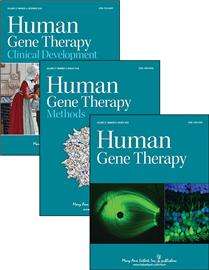AAV gene delivery vectors and cancer—The debate continues

Overwhelming evidence from the biomedical literature shows that adeno-associated virus 2 (AAV2), a viral vector often used to deliver therapeutic genes, is not associated with cancer and, in fact, may protect against cancer. Despite some previous reports insisting that AAV2 is an oncogenic virus, the preponderance of data indicates that recombinant AAV2 used in gene therapy does not integrate into the host genome increasing the risk of cancer and has anti-tumorigenic properties, as described in an article published in Human Gene Therapy.
In the article entitled "AAV Infection: Protection from Cancer," Arun Srivastava, University of Florida College of Medicine, Gainesville, and Barrie Carter, BioMarin Pharmaceutical, Novato, CA, discuss the sometimes contradictory reports on this contentious topic. The authors provide a comprehensive review of the biomedical research examining a link between AAV and tumor formation and conclude that the evidence does not support such a link. Srivastava and Carter also highlight research showing that AAV2 can negatively impact the lifecycles of several other viruses known to be associated with malignancy, such as HIV, hepatitis B virus, papillomaviruses, and adenoviruses.
"The estimation of risks from rAAV vectors is a complex exercise. It is particularly complex because AAV is a helper-dependent virus, and thus is often found in nature as a "co-infecting" virus along with other viruses," says Editor-in-Chief Terence R. Flotte, MD, Celia and Isaac Haidak Professor of Medical Education and Dean, Provost, and Executive Deputy Chancellor, University of Massachusetts Medical School, Worcester, MA. "These authors point out that there are substantial data to suggest that naturally occurring AAVs actually protect humans from developing cancer, particularly those cancers that may be caused by the other coexisting viruses."
More information: Arun Srivastava et al, AAV Infection: Protection from Cancer, Human Gene Therapy (2016). DOI: 10.1089/hum.2016.147




















